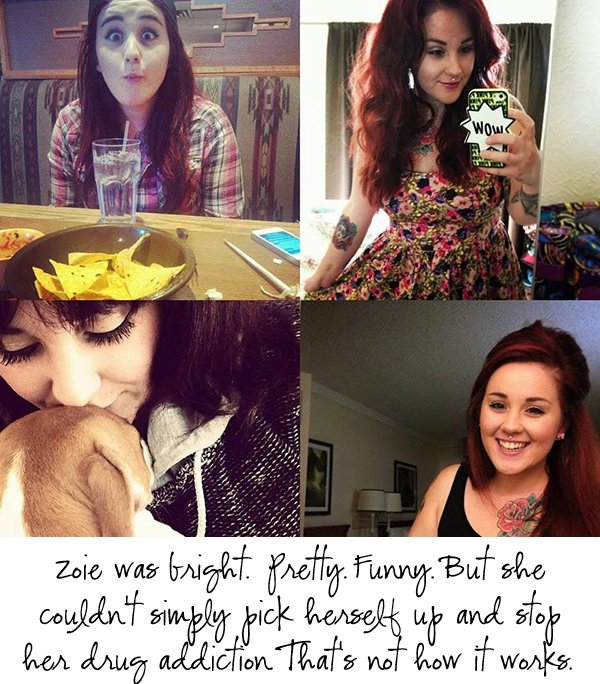Olga Martin fell into “a million pieces” at the end of 2015, after the body of her 22-year-old daughter, Zoie, was found stuffed into a trashcan in a Denver alley, acid splashed over her entire body. “Her fingerprints had been erased by the acid. When we saw her in the coffin, her hands had been placed at her sides and she was covered,” her mother remembers of this unimaginable moment.
Zoie was a heroin addict, and had been released from jail only days before, after serving a five-month sentence. The investigation of her death is ongoing. “They’re saying Zoie overdosed (she had heroin in her system when she died), but according to word on the street, she was murdered because she ratted out someone,” Olga says. “Money that she was responsible for also was missing. It’s staggering how disposable life is. She didn’t pay someone back, so they killed her.”
After running from her home, and never turning back (“I was so despondent, I didn’t care if I lost everything”), Olga is starting to grapple with Zoie’s death, and wants to help save other families from the horrific impact of drugs.

If you’re thinking this could never happen in your family, you’re sadly mistaken. Drugs are affecting families from coast to coast. “Drug overdose deaths in 2016 most likely exceeded 59,000, 19 percent above 2015, and the largest annual jump ever recorded in the United States, according to preliminary data compiled by The New York Times,” reported a recent front page story in the newspaper. Opioid addiction is an “escalating public health crisis,” the article continued. “Drug overdoses are now the leading cause of death among Americans under 50.”
All kinds of families are affected. Rich families. Poor families. White families. Ethnic families. Educated families. Uneducated families. Urban families and suburban families.
When Olga reached out to FabOverFifty to ask if we’d tell her and Zoie’s story, I answered, “Of course we will.”
Here, then, is my conversation with Olga.


